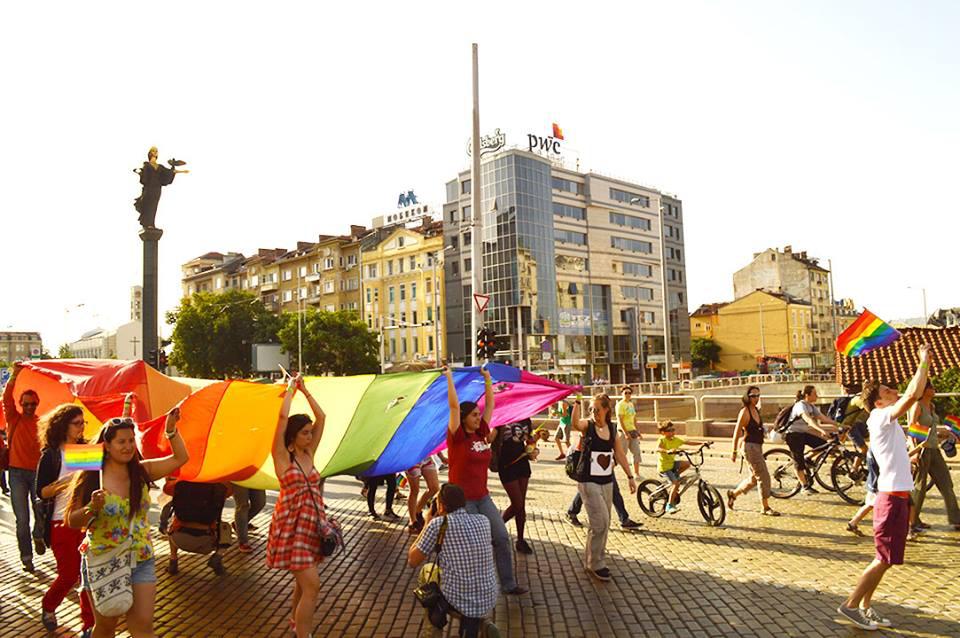
06 Jun Sofia LGBT Pride Should Showcase a Tolerant Bulgaria
by Kyle Knight
The June 10th pride march in Sofia, Bulgaria’s capital, is an opportunity for the country to showcase diversity and tolerance. Authorities can start by pledging up front to protect marchers from a group calling on counter-demonstrators to “cleanse Sofia from garbage” at the weekend event.
A group called the National Resistance, which pledges to protect Bulgaria from “foreign ideologies” such as parliamentary democracy, moral decay including “strongly propagandized sodomy,” and the “parasitism of minorities,” has registered a counter-demonstration at the same location where Sofia Pride intends to gather on Saturday. In a video message promoting the event, National Resistance leader Blagovest Asenov calls on people to bring “brooms and shovels with wooden handles” in order for them to “cleanse Sofia from garbage.” At an anti-refugee demonstration in Sofia on May 1, Asenov described immigrants “social parasites.”
Sofia Pride marchers have faced hateful rhetoric and violence in the past, and only tepid police protection. In 2011, counter-demonstrators attacked and injured five marchers. According to an Amnesty International report, police at the scene first inquired whether the victims had provoked the attack, and later suggested the victims might have been attacked because they “dressed colorfully.” In 2012, Father Evgeni Yanakiev of the Bulgarian Orthodox Church encouraged onlookers to throw stones at the marchers while the Holy Synod, the highest authority in the church, reaffirmed its opposition to “immoral manifestations” like the pride parade. In subsequent years, nationalist political parties and church leaders have spoken out against Sofia pride, but organizers have persevered.
This year, Sofia Mayor Yordanka Fandakova should publicly reaffirm authorities’ commitment to protecting marchers in advance of Saturday’s event. She can even point to domestic law in doing so: Bulgaria’s 2004 Protection against Discrimination Act prohibits all direct or indirect discrimination on many grounds – including sexual orientation. Or she could point to Bulgaria’s human rights obligations as a party to the European Convention on Human Rights or its membership of the European Union and the EU Charter of Fundamental Rights, prohibiting discrimination and protecting the right to assembly.
It’s clear that Fandakova has a responsibility to stand up for Bulgaria’s LGBT community, and Sofia Pride organizers have said they will continue with their plans to hold the event. The question is: Will the mayor find the courage to stand with them?

